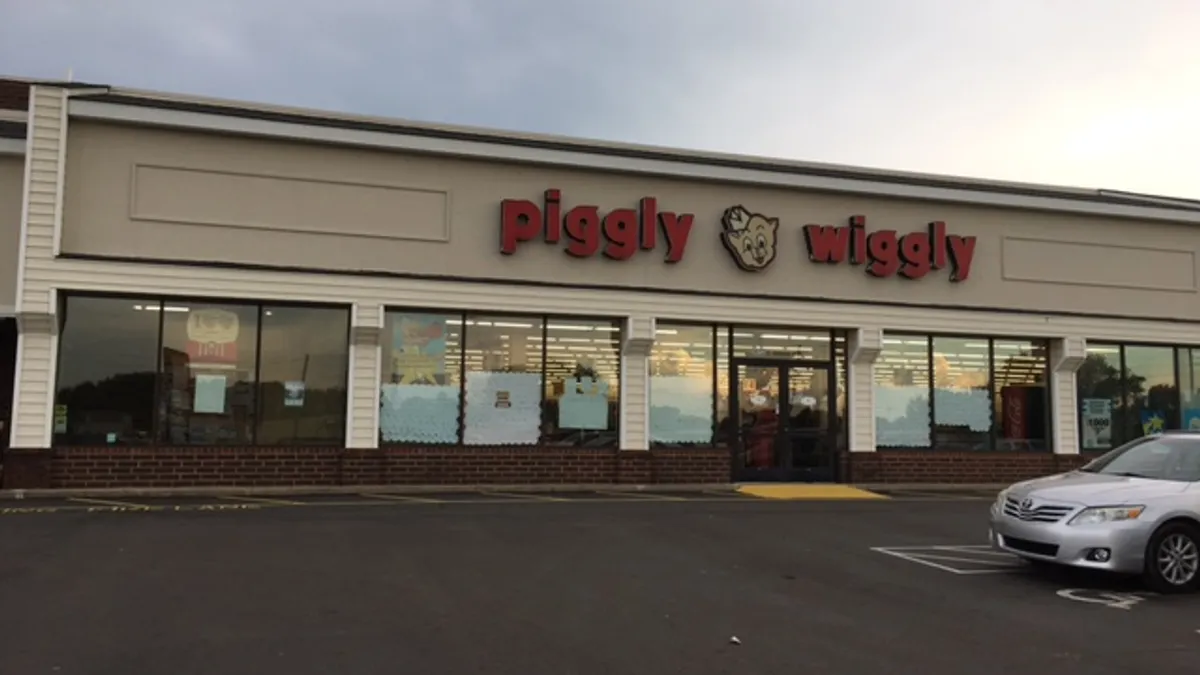Dive Brief:
- A Piggly Wiggly store in Antioch, Illinois has stirred up local controversy by installing four video gambling machines, according to the Daily Herald.
- The store’s owner installed the machines after receiving approval from the town board for a liquor license. Under Illinois law, getting approved for a liquor license also grants an establishment a video gambling license.
- Some community members have objected to the presence of gambling machines in a family-focused establishment, while town board members say allowing gambling wasn’t their intention in approving the store’s liquor license. Store owner David Karczewski, meanwhile, said he installed the machines to give his location a competitive edge against larger competitors, and he’s seen many new shoppers as a result.
Dive Insight:
Piggly Wiggly has a long history of innovation and dazzling consumers. The company’s first store, which opened in Memphis back in 1916, was by most accounts the first self-service grocery store. The founder, a Virginia wholesaler and born salesman named Clarence Saunders who saw numerous inefficiencies with the prevailing system of placing orders with store clerks, stocked his store with more than 1,000 products and told customers that “if they wanted something, they should be able to reach out and take it.”
Saunders innovation launched an empire, and today Piggly Wiggly operates more than 600 independently owned stores in the Southeast and Midwest markets, mainly in rural communities and suburbs.
Despite its former glory and fierce customer loyalty, today Piggly Wiggly stores are struggling against cheaper, more innovative and service-focused competitors. Although some stores have undergone remodels in recent years, many still offer a very traditional, one-stop shopping experience.
Store services and entertaining add-ons like the video gambling machines at the Antioch Piggly Wiggly can be a relatively inexpensive way to draw customers. The goal is to stand out from the competition. To that end, more and more retailers these days are building bars and restaurants in their stores, as well as offering one-off services like banking, parcel shipping, Coinstar machines and more. Kroger stores in Georgia have Motor Vehicle Division self-service kiosks.
The Antioch Piggly Wiggly is one of just a few grocery stores in Illinois to offer video gambling machines. However, those machines may prove to be too a liability, considering the press attention they’ve drawn and the objections from members of the community who say people shouldn’t be able to gamble in the same place where families buy their milk and cereal.
Often referred to as the "crack cocaine" of gambling, video slots can be highly addictive. Slot machines are designed to make people want to keep playing, using tricks of design, effects, music and prizes to trick the brain into spending more, according to KS Problem Gaming. Rehab International estimates that about 2.5 million Americans are compulsive gamblers, about 3 million more are problem gamblers, and 15 million others are at risk of becoming problem gamblers. According to WalletHub, Illinois ranks 18th in the nation for most gambling addicted states, and ranks 2nd for gambling problems and treatment.
Grocers shouldn’t be afraid to think outside the box when it comes to bringing in new customers. But their attractions shouldn’t become distractions. Moreover, retailers need to make sure their services and add-ons are encouraging people to shop their aisles. The Piggly Wiggly’s gambling machines are located at the front of the store, making it easy for people to come in and play, without making any purchases.
Grocers also need to understand that additional entertainment shouldn’t be a stand in for good retailing. Bars, restaurants and other services may draw customers into stores, but it’s the cleanliness of the aisles, top-notch selection, pricing and other operational measures that will make them regular shoppers.









